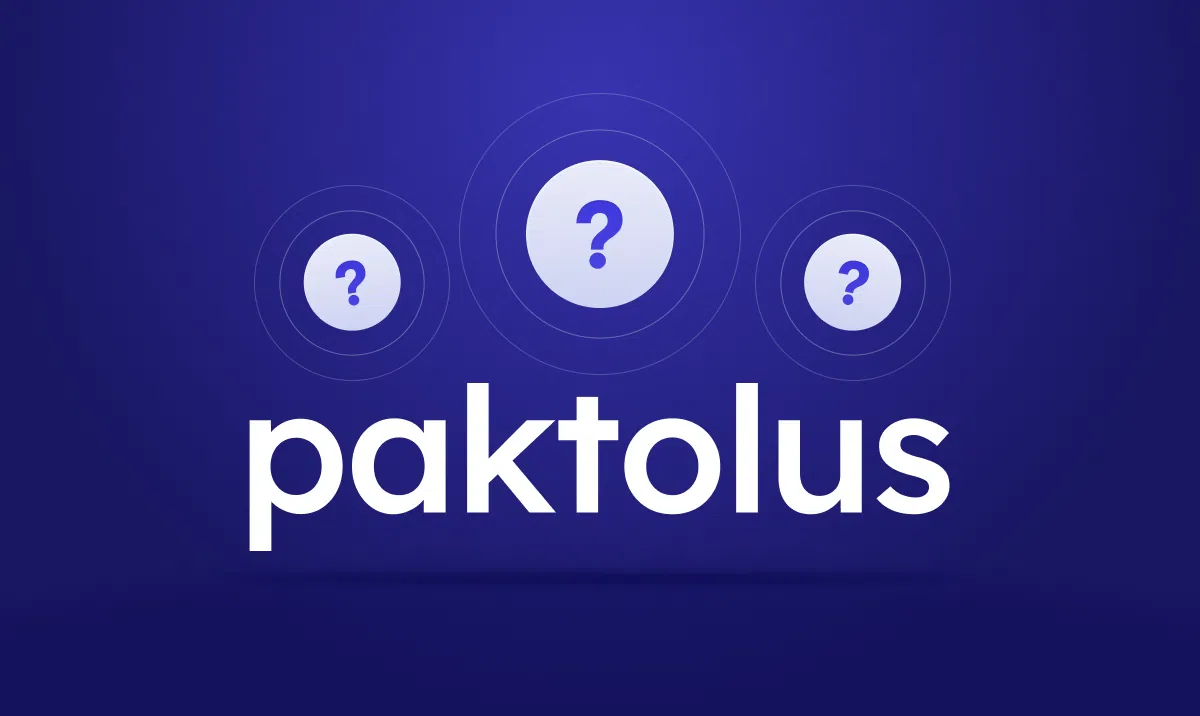Why Paktolus?
A few months ago, we posted a story about our company’s “strategic roll-up”— a move aimed at providing our clients with broader technology solutions, enhanced expertise, and improved process efficiencies. We combined three companies, Paktolus, a technology development company, higherL, a tech-enabled learning and training company, and Campaign Precision, a digital marketing and branding company.
Our three-to-one merger created a different kind of technology company. One that evolutionary theorist Charles Darwin might have described as “a company adapting to its changing environment.”
Today we’d like to take you under the hood and share some thoughts about what this means, and how it differentiates us from other technology companies.
To fully appreciate the significance of our merger, it’s important to consider the fundamental evolution that has been unfolding beneath the surface. According to McKinsey, we’ve been shifting toward a dematerialized, digitized, knowledge-driven world.
For examples of dematerialization, we need look no further than the activities of today’s enterprises. Key among them is their shift from owning physical infrastructure to leveraging cloud-based services for computing power and storage, prioritizing intellectual property and intangible assets such as brands, patents, and data over tangible assets like factories and machinery.
Consider that 50 years ago, most S&P 500-listed companies were almost entirely comprised of tangible assets (90%). That means company balance sheets reflected factories, office buildings, fleets of vehicles, inventory, and anything else that one could physically touch, manipulate, transport, or physically interact with.
In today’s digital economy, most of the companies on the S&P are almost entirely comprised of intangible assets (90%), chief among them – software, human capital, patents, and brands.
It is precisely these intangible assets, according to McKinsey research, that are emerging as the primary drivers of today’s economic activity and for this reason, market leaders are investing more in their intangible assets than tangible assets to maximize their growth.
It is also precisely these intangible assets that are the focus of Paktolus’ transformative offerings, which encompass a strategic blend of technology (software), tech-enabled learning and training (human capital), digital marketing, and branding (patents and brands).
This strategic emphasis on intangible assets underscores Paktolus’ forward-looking approach to innovation and market leadership. It’s through the harnessing of these assets that Paktolus enables organizations to adapt and thrive in a dematerialized, digital economy. This unique and empowering combination of expertise and perspective not only sets Paktolus apart but also forms the cornerstone of our transformative solutions. Specifically:
- Paktolus helps transform our clients into digital powerhouses.
Our software designers unlock the power of Paktolus Adaptive Intelligence® – a seamless solution that integrates automation, data, and artificial intelligence, empowering our clients to drive efficiencies, accelerate growth, and supercharge business performance.
- Paktolus helps clients command more value.
Brands are powerful business tools that can create preference, command a premium, and ultimately provide competitive advantage. Our digital marketing, coupled with our strategic and creative branding experts help our clients to leverage their brands for maximum market value.
- Paktolus helps clients enhance human capital productivity.
Our tech-enabled learning and training experts focus on employee training and development as an intangible asset for increasing knowledge and skills, which leads to better products, services, customer experiences – and value. As the intangible, digitized economy spreads, the imperative to reskill—within companies, and more broadly in society—becomes even more urgent.
Paktolus Future-Ready
At Paktolus, we are always looking to the future in an effort to better understand and forecast the impact of trends on business, government, and society at large.
For example, as consumers prioritize experiences over possessions, luxury brands may need to focus on providing unique and memorable experiences that go beyond traditional product offerings. This could involve more experiential marketing events, luxury travel experiences, or exclusive access to VIP events and services.
With advancements in technology, transportation is becoming increasingly digitized, with the rise of ride-hailing services, car-sharing platforms, and mobility-as-a-service (MaaS) offerings. This shift could lead to a decrease in private car ownership and a rise in shared and on-demand mobility services, transforming the way people move around cities.
The dematerialization and digitization of work has led to an increase in remote work and digital nomadism, allowing people to live and work from anywhere with an internet connection. This could impact the distribution of populations within cities and result in changes in housing demand and urban planning strategies.
These are just a few examples of major business sectors being reshaped by the power of today’s transformative technologies. Similar changes are occurring across healthcare, finance, aviation, aerospace, retail, and manufacturing – to name a few.
By keeping our pulse on current and future trends, and continuously pushing to discover new insights, Paktolus will remain future-ready, and uniquely qualified to position its clients at the forefront of a digital evolution in full swing.
Paktolus
Leaders of the Digital Evolution


